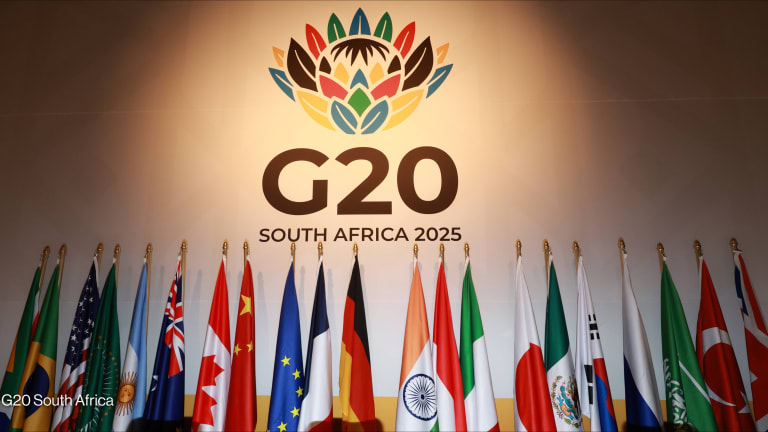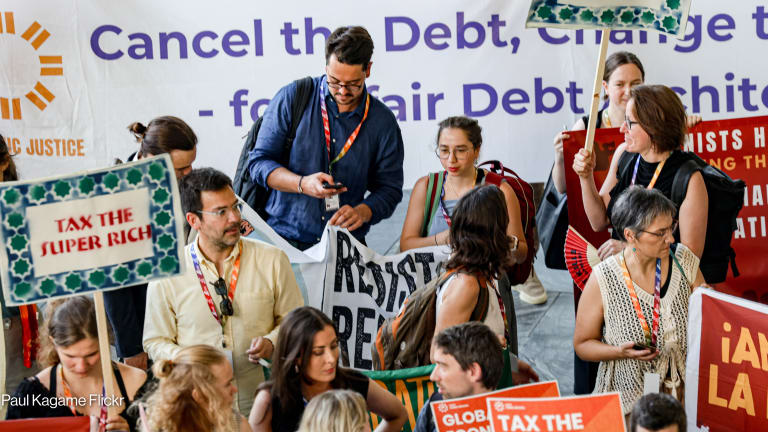
The managing director of the International Monetary Fund said Tuesday that “there is a growing risk of a debt crisis” due to borrowing amid the COVID-19 pandemic, tightening monetary policy and the rising cost of servicing debt in U.S. dollars.
Speaking at the Devex World event in Washington, Kristalina Georgieva also said that creditor committees for Zambia, Chad, and Ethiopia will meet within 10 days under a common G-20 framework, supported by IMF. A resolution of those talks was needed for the three nations but also “to energize other countries to step forward,” she said.
Some 30% of developing and emerging markets, and 60% of low-income countries, are at or near debt distress, Georgieva added.
In a wide-ranging conversation, the Bulgarian also articulated her vision for an expanded role for IMF, working on issues such as social safety nets and climate change.
Sign up for Devex Invested
The must-read weekly newsletter that keeps you up to date with news about business, finance, and the SDGs.
With countries’ financial stability increasingly threatened more by global shocks than domestic mismanagement, Georgieva said: “We have to rethink how to act more in the direction of supporting countries early, preemptively building resilience to these shocks. And that goes beyond the traditional focus of financial sector fiscal policy.”
She said that this was the subject of internal debates at the fund — whose traditional mandate is macroeconomic and financial stability, growth, and employment — but that she had the backing of IMF member countries.
“We have now our membership looking at us and saying: ‘The world is changing. We count on you to lean forward in these changes,’” she said.
The comments come amid growing calls, most recently from U.S. Treasury Secretary Janet Yellen, around the need to reform IMF and the World Bank to better tackle global rather than national challenges.
Georgieva said that the pandemic and widespread effects of the war in Ukraine showed that the fund should take a more comprehensive view of the notion of “resilience.”
“Resilient people: educated, healthy, with sound social protection under their feet,” she said. “Resilient society, not just economy: one that is more inclusive, where there is a sense of fairness, where nobody fears that children will go to bed hungry. And of course a resilient planet.”









